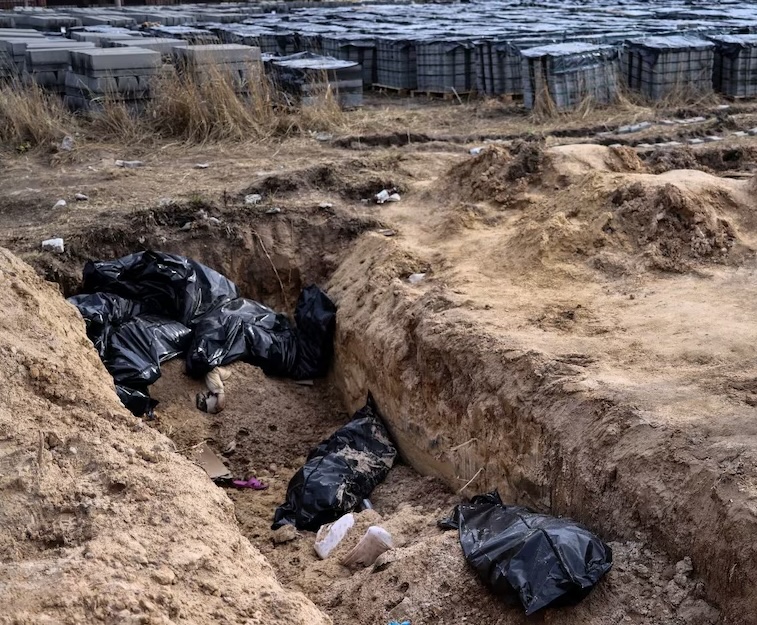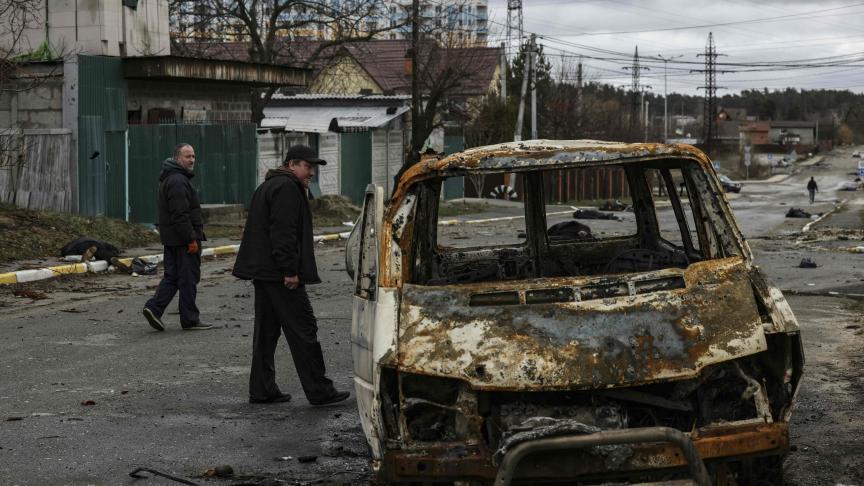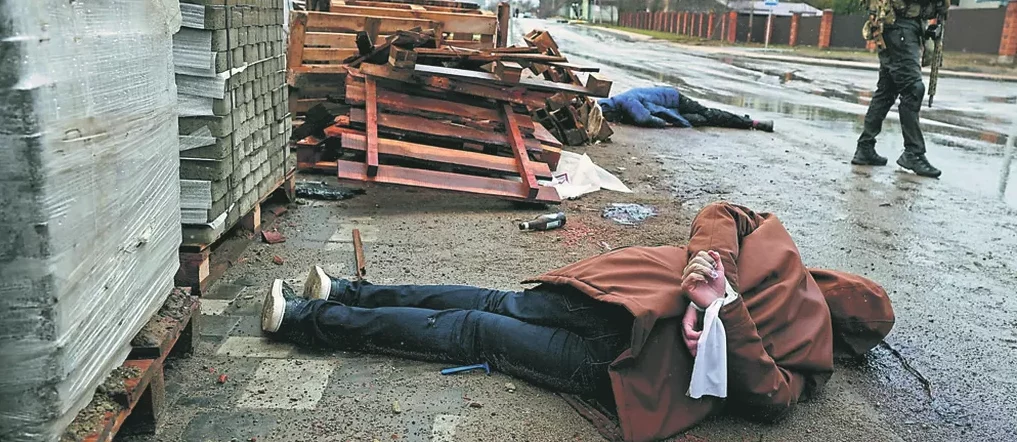Three Years After Bucha: Russia Continues to Spread Terror and Destruction
Today marks the third anniversary of the liberation of Bucha by Ukrainian forces. On March 31, 2022, Ukraine discovered the scale of the atrocities committed by the Russian army against civilians. The very next day, the world awoke to the horror through images and videos shared by international journalists: murdered civilians, some with their hands tied behind their backs, others tortured and coldly executed. The streets of this small town of 36,000 inhabitants, located in the suburbs of Kyiv, were strewn with bodies, and the charred remains of military vehicles testified to the brutality of the Russian occupation.
A Documented and Proven Massacre
Shortly after these discoveries, in December 2022, The New York Times published a thorough investigation, the result of eight months of work, aimed at identifying those responsible for these atrocities. Based on surveillance footage, drone imagery, resident testimonies, and intercepted phone calls, the investigation revealed the involvement of the 234th Airborne Regiment from Pskov in these war crimes.
The chain of events is damning.
On February 24, 2022, Russia launched its invasion of Ukraine. On February 27, Russian units entered Bucha but were pushed back by Ukrainian volunteers. On March 3, the Russians returned in force and took control of the city. From the moment of their arrival, they engaged in systematic looting.
The horror escalated quickly. Men were taken prisoner, brought to a military base, and summarily executed. Among the victims were defenseless civilians: residents on bicycles, a 68-year-old man out to buy food, a 14-year-old girl… all cold-bloodedly murdered by soldiers of the 234th Regiment from Pskov. The bodies were left in the streets, forcing residents to live among the dead for weeks until the city was liberated by the Ukrainian army.
Russian soldiers even used their victims’ phones to call their families in Russia, with no concern for being identified. These calls, intercepted by Ukrainian intelligence services, helped journalists establish the direct responsibility of several soldiers in the massacres.

Photo: RONALDO SCHEMIDT/AFP
A Repeated Model of Terror
The massacres committed in Bucha are not an isolated case. In all Russian-occupied territories, the same crimes are carried out systematically:
Arbitrary arrests
Forced disappearances
Torture and sexual violence
Destruction of Ukrainian-language books and repression of local culture
The mass graves and devastation of Irpin, Izyum, Kherson, Bakhmut, Mariupol, and many other cities provide chilling proof: wherever the Russian army goes, it leaves behind war crimes and human rights violations. Every conquered territory becomes a crime scene.
The Duty of Remembrance and Justice
Three years after the liberation of Bucha, it is essential never to forget. The truth about these massacres must remain in our collective memory, and justice must be served for the 458 murdered victims and their families. Remembering Bucha means rejecting impunity — and firmly committing to ensuring that such horrors never happen again.

Photo: RONALDO SCHEMIDT/AFP
Cover photo: Zohra Bensemra/REUTERS

